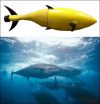(Press-News.org) OAK BROOK, Ill. – September 19, 2012 – The American Society for Gastrointestinal Endoscopy's (ASGE) Preservation and Incorporation of Valuable Endoscopic Innovations (PIVI) initiative addresses the use of endoscopy simulators for training and assessing skills in an article appearing in the September issue of GIE: Gastrointestinal Endoscopy, ASGE's monthly peer-reviewed scientific journal. This PIVI is one in a series of statements defining the diagnostic or therapeutic threshold that must be met for a technique or device to become considered appropriate for incorporation into clinical practice.
Simulator training can provide a student with a relaxed opportunity for repetitive practice of skills including those that might not be encountered with sufficient frequency during the course of a standard training program. Improving basic skills before actual patient experience could result in reduced patient discomfort. Manpower limitations of available endoscopic educators or cost considerations of the increased time that trainers must spend away from their clinical duties would support the use of simulation tools that might either shorten the learning curve or allow students to do more of their instruction independently.
"Although the use of simulators has become much more widespread, particularly via the use of ex vivo–based hands-on training courses by the ASGE at its Institute for Training and Technology in Oak Brook, Ill., and at many regional courses throughout the world, there is no consensus to date on just how much of a role they should play in standard training," said PIVI Committee Chair Jonathan Cohen, MD, FASGE. "Ultimately, the decision about whether to incorporate these technologies into a training program must rely on data regarding the magnitude of training benefits, any cost savings resulting from accelerated learning, the initial and ongoing expenses associated with the simulator work, and the local needs of the institution."
This PIVI reviews the current literature on simulator use in endoscopy and assesses what data are required to support a wider adoption of their use for endoscopy training and skills assessment. Specifically, the following two questions are considered: How much benefit must be demonstrated from the use of simulators to justify widespread adoption into standard endoscopy training? How reliable do simulator-based assessments need to be as a predictor of patient-based skills to justify their use in credentialing and recredentialing for endoscopy? The document outlines the following:
Thresholds recommended for this PIVI
Threshold for incorporation of a simulator into training: For an endoscopy simulator to be integrated into the standard instruction for a procedure, it must demonstrate a 25 percent or greater reduction in the median number of clinical cases required for the trainees to achieve the minimal competence parameters for that procedure.
Threshold for using a simulator to assess skill: Simulator-based assessment tools must be procedure specific and predictive of independently defined minimal competence parameters from real procedures with a к value (i.e. correlation coefficient with value of 0 meaning that skills on a simulator had no correlation with real procedures and value of 1.0 had perfect correlation of simulator skills with real procedures) of at least 0.70 for high-stakes assessment.
Summary of PIVI methodology and literature review
A comprehensive review of published trials using ex vivo and computer simulators was performed and circulated to the members of the PIVI committee.
Training: Despite their varied capabilities and promising potential, use of the current endoscopic simulators appears to help primarily with early learning curves for endoscopic procedures. However, to date, simulator use has not yet led to an accelerated achievement of competency benchmarks or improved outcomes for patients.
Assessing skill: There are only limited data examining the ability of endoscopy simulators to be used as tools to assess endoscopic skill. The limited literature available in this respect has shown these models to lack performance metrics of adequate sensitivity or reliability for use as meaningful assessment tools.
Study designs needed to address the questions raised by this PIVI
Training: The benefit of using simulators for training can only be validated in an adequately powered, controlled trial that demonstrates that the incorporation of simulators in a training program leads to acquisition of technical and cognitive competency with fewer clinical endoscopic procedures than required by traditional supervised endoscopic instruction without access to the simulator.
Assessment: A simulator that is able to assess the actual clinical skills (technical and cognitive) of a clinician performing endoscopy may be a useful tool for credentialing (or recredentialing). A prerequisite for any validation of such a tool would be a previous consensus on how to measure competency for a particular procedure in real patients.
Suggested areas for future development
The road to reaching the target for simulator-based skills assessments will require both improvement in the way in which actual clinical procedure performance is assessed and advances in the simulators themselves. Specifically, this will require the following:
Development of accurate, reliable, and validated clinical patient-based assessment tools for all endoscopic procedures to establish learning curves and benchmark clinical performance abilities.
Development of simulated cases of increased difficulty to allow discrimination of differing grades of ability (not just novice/expert).
Development of clinically relevant, accurate, and reliable simulator assessment metrics that effectively distinguish the different grades of ability and correlate with clinical performance benchmarks in prospective validation studies.
As professional societies work to better define the constituents and benchmarks for competency in various procedures, investigators and providers of simulators will need to focus their efforts on addressing current unmet needs, determining which trainees get the most benefit from which tools, and reducing the cost of simulation to improve access and use.
The PIVI committee (consisting of a committee of ASGE physician experts) in preparing the document,
employed evidence-based methodology, using a MEDLINE and PubMed literature search to identify
pertinent clinical studies on the topic. The PIVI is provided solely for educational and informational purposes and to support incorporating these endoscopic technologies into clinical practice. It should not be construed as establishing a legal standard of care. To read the full PIVI document, log on to ASGE's website at www.asge.org.
INFORMATION:
About the American Society for Gastrointestinal Endoscopy
Since its founding in 1941, the American Society for Gastrointestinal Endoscopy (ASGE) has been dedicated to advancing patient care and digestive health by promoting excellence and innovation in gastrointestinal endoscopy. ASGE, with more than 12,000 members worldwide, promotes the highest standards for endoscopic training and practice, fosters endoscopic research, recognizes distinguished contributions to endoscopy, and is the foremost resource for endoscopic education. Visit www.asge.org and www.screen4coloncancer.org for more information and to find a qualified doctor in your area.
About Endoscopy
Endoscopy is performed by specially-trained physicians called endoscopists using the most current technology to diagnose and treat diseases of the gastrointestinal tract. Using flexible, thin tubes called endoscopes, endoscopists are able to access the human digestive tract without incisions via natural orifices. Endoscopes are designed with high-intensity lighting and fitted with precision devices that allow viewing and treatment of the gastrointestinal system.
ASGE initiative addresses endoscopy simulators for training and skill assessment
2012-09-20
ELSE PRESS RELEASES FROM THIS DATE:
Split-dose preparation for colonoscopy increases precancerous polyp detection rates
2012-09-20
OAK BROOK, Ill. – September 19, 2012 – A new study from researchers at the Mayo Clinic Arizona showed that system-wide implementation of a split-dose preparation as the primary choice for colonoscopy significantly improved both polyp detection rates and adenoma (precancerous polyp) detection rates, overall quality of the preparation, and colonoscopy completion rates. The study appears in the September issue of GIE: Gastrointestinal Endoscopy, the monthly peer-reviewed scientific journal of the American Society for Gastrointestinal Endoscopy (ASGE).
Colorectal cancer develops ...
Researchers identify possible key to slow progression toward AIDS
2012-09-20
One of the big mysteries of AIDS is why some HIV-positive people take more than a decade to progress to full-blown AIDS, if they progress at all.
Although the average time between HIV infection and AIDS in the absence of antiretroviral treatment is about 10 years, some individuals succumb within two years, while so-called slow progressors can stay healthy for 20 years or longer.
Researchers already know that many slow progressors carry a gene called HLA-B*57 (B57), an immune gene variant that is found in less than 5 percent of the general population but in 40 to ...
Research suggests promise of cell therapy for bowel disease
2012-09-20
WINSTON-SALEM, N.C. – Sept. 19, 2012 – New research shows that a special population of stem cells found in cord blood has the innate ability to migrate to the intestine and contribute to the cell population there, suggesting the cells' potential to treat inflammatory bowel disease (IBD).
"These cells are involved in the formation of blood vessels and may prove to be a tool for improving the vessel abnormalities found in IBD," said lead author Graca Almeida-Porada, M.D., Ph.D., a professor at Wake Forest Baptist Medical Center's Institute for Regenerative Medicine. The ...
Misinformation: Psychological Science shows why it sticks and how to fix it
2012-09-20
Childhood vaccines do not cause autism. Barack Obama was born in the United States. Global warming is confirmed by science. And yet, many people believe claims to the contrary.
Why does that kind of misinformation stick? A new report published in Psychological Science in the Public Interest, a journal of the Association for Psychological Science, explores this phenomenon. Psychological scientist Stephan Lewandowsky of the University of Western Australia and colleagues highlight the cognitive factors that make certain pieces of misinformation so "sticky" and identify some ...
Ultra-distant galaxy spied amidst cosmic 'Dark Ages'
2012-09-20
Pasadena, CA— With the combined power of NASA's Spitzer and Hubble Space Telescopes, as well as a cosmic magnification effect, a team of astronomers, including Carnegie's Daniel Kelson, have spotted what could be the most distant galaxy ever seen. Light from the young galaxy captured by the orbiting observatories was emitted when our 13.7-billion-year-old universe was just 500 million years old. Their work is published September 20 by Nature.
The far-off galaxy existed within an important era when the universe just emerged from the so-called cosmic Dark Ages. During this ...
Robotic tuna is built by Homeland Security
2012-09-20
No question about it… they're very good at what they do. But they don't take well to orders, especially those to carry out inspection work in oily or dangerous environments, or in any kind of harsh environment, for that matter. Still, they're one of the fastest and most maneuverable creatures on the planet, having extraordinary abilities at both high and low speeds due to their streamlined bodies and a finely tuned muscular/sensory/control system.
This impressive creature is the humble tuna fish.
The Department of Homeland Security's (DHS) Science and Technology ...
NASA satellite sees fading rainfall in Tropical Storm Nadine
2012-09-20
Tropical Storm Nadine continues to bring rains and winds to the Azores in the eastern Atlantic Ocean, but that rainfall continues to diminish according to data from NASA satellites. NASA's unmanned Global Hawk aircraft is also exploring the storm today, Sept. 19.
A tropical storm warning is in effect on Sept. 19 for the islands of Flores, Corvo, Faial, Pico, Sao Jorge, Graciosa, Terceira, Sao Miguel and Santa Maria in the Azores.
The Tropical Rainfall Measuring Mission (TRMM) satellite flew over Nadine on Sept. 19 at 1013 UTC (6:13 a.m. EDT) and captured data on rainfall ...
Arctic sea ice hits smallest extent in satellite era
2012-09-20
The frozen cap of the Arctic Ocean appears to have reached its annual summertime minimum extent and broken a new record low on Sept. 16, the National Snow and Ice Data Center (NSIDC) has reported. Analysis of satellite data by NASA and the NASA-supported NSIDC at the University of Colorado in Boulder showed that the sea ice extent shrunk to 1.32 million square miles (3.41 million square kilometers).
The new record minimum measures almost 300,000 square miles less than the previous lowest extent in the satellite record, set in mid-September 2007, of 1.61 million square ...
Climate scientists put predictions to the test
2012-09-20
Climate-prediction models show skills in forecasting climate trends over time spans of greater than 30 years and at the geographical scale of continents, but they deteriorate when applied to shorter time frames and smaller geographical regions, a new study has found.
Published in the Journal of Geophysical Research-Atmospheres, the study is one of the first to systematically address a longstanding, fundamental question asked not only by climate scientists and weather forecasters, but the public as well: How good are Earth system models at predicting the surface air temperature ...
Kelsey McBride PR Signs Author Robert Radcliffe
2012-09-20
Kelsey McBride, president of Kelsey McBride PR, officially announced today that Robert Radcliffe, author of 180 Degrees, signed on for her agency's PR services.
180 Degrees, by Robert Radcliffe, is an inspiring true story of a once homeless kid addicted to drugs, turned sober, self made millionaire by the age of 30.
"I turned my life around 180 degrees. I went from being a daily-using drug addict and occasional 'big shot' dealer to, eventually, a homeless junkie living on the streets. Today I am a completely sober, self-reliant, self-employed husband, father, ...



